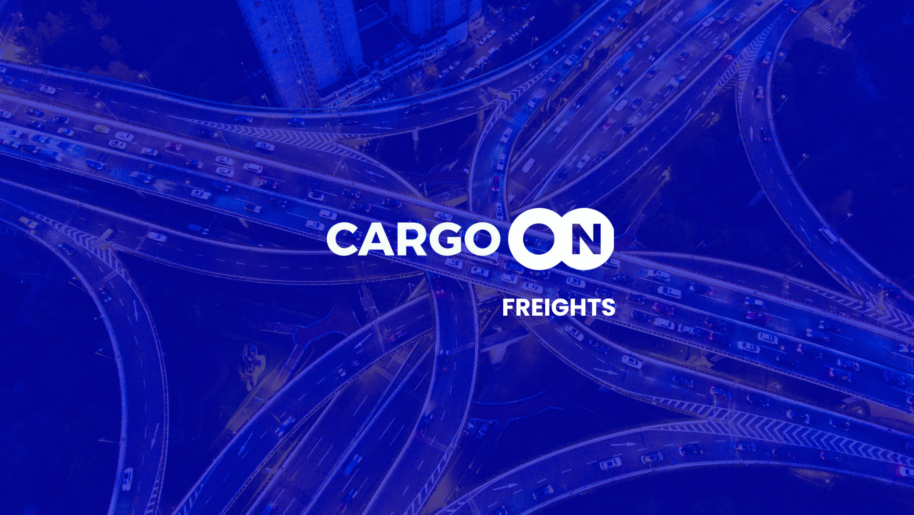10 FMCG Peak Season Logistics Challenges Solved by Digital Transformation

In the fast-paced world of food & beverage and CPG manufacturing, peak season inevitably presents numerous obstacles for logistics and supply chain managers.
Amid ongoing global supply chain disruptions, shippers are gearing up to face these challenges in a delicate balancing act of meeting increasingly soaring customer expectations while keeping costs down. Hence, prioritizing digital transformation is more critical than ever to navigate these challenges and enable a sustainable operational success.
As European leading experts in tech solutions for logistics, we understand the complexities and the significant challenges that peak season poses for shippers.
Here is a list with actionable tips and strategies that can help optimize operations, reduce costs, and improve efficiency during the busiest times of the year by leveraging technology.
1. Sudden Demand Spikes
In the FMCG industry, demand can surge unexpectedly during peak seasons, like the holiday rush or back-to-school periods. These fluctuations make it challenging to manage inventory, leading to stockouts or overstocking. For instance, a beverage company may see demand for specific products triple overnight, which, if not well-prepared, could lead to missed sales opportunities.
Tip:
Implement AI-driven demand forecasting to better predict demand shifts and be able to adjust for changes in real-time, preventing stock issues. Furthermore, with transport allocation solutions such as CargoON’s Freights you can automate freight orders: its real-time freight allocation feature boosts accuracy, ensuring goods are delivered just in time during fluctuating peak demand periods

2. Complex Warehouse Management
During peak season, managing warehouse space becomes more difficult, especially when handling perishable items like dairy products or frozen goods. Inefficient space utilization can cause delays, leading to products being stored improperly or waiting too long to be shipped out.
Tip:
Besides using softwares for inventory and warehouse management, integrate your systems with slot booking solutions like Dock Scheduler to streamline truck arrival schedules, reduce congestion, optimize resources and ultimately increase your handling capacity when you need it most. This ensures goods are processed and shipped without delays. With CargoON’s Dock Scheduler, FMCG companies can cut waiting times up to 70% and improve warehouse efficiency by 25%, ensuring timely movement of goods even when space and time constraints are tight.

3. Transport Shortages
Transport capacity is often stretched thin during peak seasons, especially in the food and beverage sector, where vehicle compliance to industry requirements is a must and timely deliveries are crucial for product freshness. Without sufficient transport resources, freight costs increase and delays can occur, resulting in expired products or disappointed customers.
Tip:
Benefit from a digital transport management platforms like CargoON’s Freights, which offers access to an extensive network of carriers, including spot market options for last-minute transport needs, while helping to keep costs under control and increase process speed. Shippers using Freights benefit from minimum 3% of savings on transport spend and 70% gain on process time.
4. Inefficient Resource Allocation
Misallocating resources like labor, equipment, or transportation can lead to operational bottlenecks, especially in the fast-moving consumer goods sector. For instance, a food manufacturing plant may find itself understaffed in crucial areas, resulting in delayed shipments and lost revenue.
Tip:
Leverage the power of data analysis to quickly identify patterns, assess the situation, and respond immediately to business needs with strategic decisions based on facts. Business intelligence tools such as CargoON’s Reports and Dashboard can help you track your KPIs, analyze past performance and optimize resource allocation, ensuring labor and transport capacity are used effectively when demand is higher and minimizing inefficiencies.

5. Coordination Between Multiple Stakeholders
The complex distribution of FMCG sector involves numerous stakeholders, from suppliers and carriers to retailers. Poor communication among these parties during high-demand periods can cause delayed shipments, misaligned schedules and other inefficiencies that can result in increased costs or unsatisfied customers.
Tip:
Overcome the shortfalls of fragmented and time-consuming communications based on emails, messages and phone calls by consolidating and automating all your communications into one centralized platform to streamline your workflows, reduce inefficiencies, increase speed and improve security. With an integrated collaborative platform like CargoON, shippers enjoy 80% gain on speed of communication, with seamless flows with internal and external stakeholders that allow real-time data sharing, ensuring everyone has access to up-to-date information, preventing costly misunderstanding while strengthening collaboration.
6. Unpredictable Delivery Schedules
In the food and beverage industry, late deliveries can lead to spoiled goods or empty shelves, damaging relations with customers and brand reputation. Peak seasons make managing delivery schedules even harder, especially when dealing with strict retailer deadlines or international shipments.
Tip:
Implement a dock management software like Dock Scheduler for real-time slot scheduling and coordination of deliveries. This tool helps manage unpredictable delivery times by allowing carriers to book time slots, reducing dock congestion and ensuring timely unloading thanks to an increased warehouse handling capacity up to 25%.

7. Labor Shortages
Finding enough qualified workers during peak season is a constant struggle for many FMCG companies. Labor shortages can lead to processing delays in warehouses or logistics centers, especially when handling perishable or time-sensitive products.
Tip:
Companies using digital solutions for analytics can better predict peak labor needs, ensuring they have adequate staff to maintain operational flow. Thanks to Dock Scheduler, shippers can optimize their resource planning to increase their handling capacity without additional workers and Reports module allows better labor needs forecasting, so you can manage workforce schedules to ensure you have the necessary staffing to meet increased demand without overworking existing employees.
8. Rising Transportation Costs
As demand for transportation increases during peak season, so do costs. FMCG companies are often forced to pay premium rates for last-minute shipments, which can eat into profits.
Tip:
Use digital freight solutions like CargoON’s Freights to manage and optimize transport costs with increased flexibility. The platform enables shippers to compare market rates and negotiate better deals through automated processes, ensuring cost-effective logistics operations. Furthermore, leveraging technology to optimize your operational efficiency helps you become a “shipper of choice” and improve your relations with carriers.
🟢 Learn how a food company producing 45,000 tons of goods annually managed to efficiently optimize transport costs
9. Poor Real-Time Visibility
The lack of real-time visibility into the supply chain can result in delayed shipments, lost goods, or unanticipated disruptions. This is especially problematic in the FMCG sector, where service level agreement and timeline compliance with retailers and distributors are key performance indicators and even slight delays can negatively affect the whole supply chain.
Tip:
It’s not possible to gain visibility without digitalizing your supply chain from start to finish. With end-to-end tracking and real-time management, logistics and supply chain managers can monitor shipments status and routes in real-time and stay ahead of unforeseen events, allowing for proactive responses to delays or disruptions. With CargoON you can ensure real-time visibility across the supply chain and increased transparency and collaboration with your stakeholders, while saving time otherwise spent on exchanging emails and phone calls.
Example: Real-time tracking with CargoON allows FMCG supply chain managers to monitor and adjust shipments on the fly, minimizing delays and maintaining product freshness.
🟢 Read how Interpipe managed to reduce delays thanks to track & trace service
10. Sustainability Goals
The increased transport needs during peak seasons often result in more trucks on the road, higher emissions, and missed sustainability targets. FMCG companies face the challenge of balancing operational efficiency with environmental impact.
Tip:
Digitalization opens the way to a more sustainable warehouse management and road transport, as it allows the calculation of emissions and enables the use of tools for smart route optimization and load consolidation to minimize empty miles and reduce fuel consumption. This not only cuts costs but also helps companies to significantly reduce their carbon footprint.
Final Thoughts
In today’s fast-paced logistics landscape, especially during peak seasons, relying on outdated manual processes is no longer an option. Prioritizing digital transformation by adopting advanced platforms, like CargoON, not only helps overcome the challenges of peak season but also gives companies a competitive edge through optimized processes, reduced costs, and improved efficiency.
Digital transformation is not just a strategy—it’s a necessity for operational success in ever more challenging markets. Explore how CargoON can revolutionize your logistics operations and help you stay ahead of the competition.
